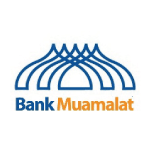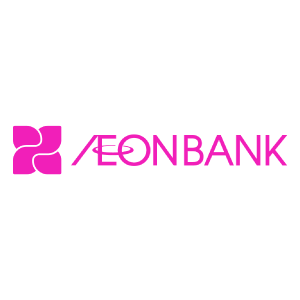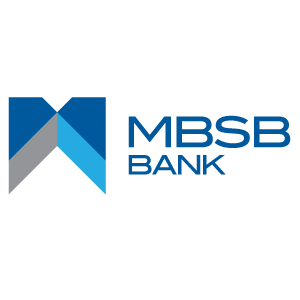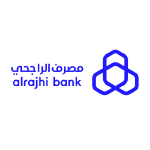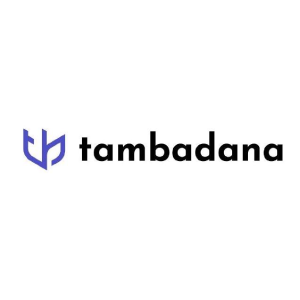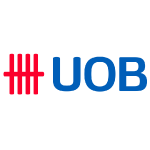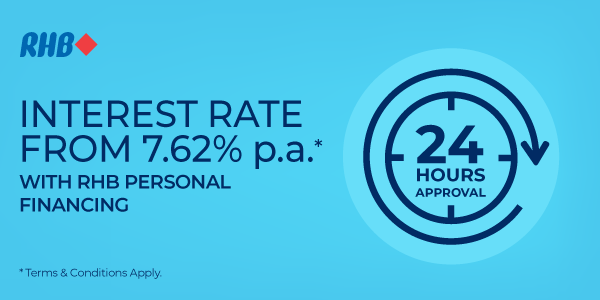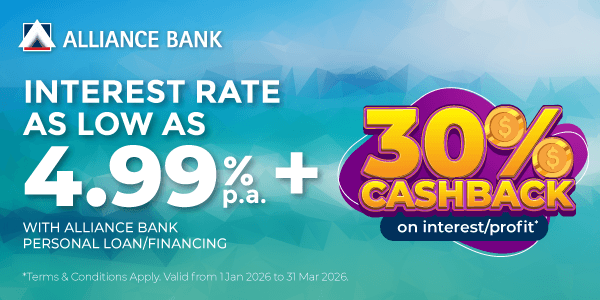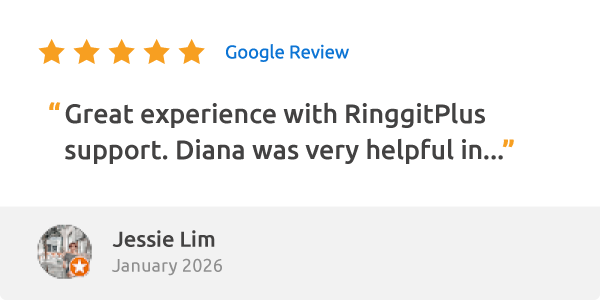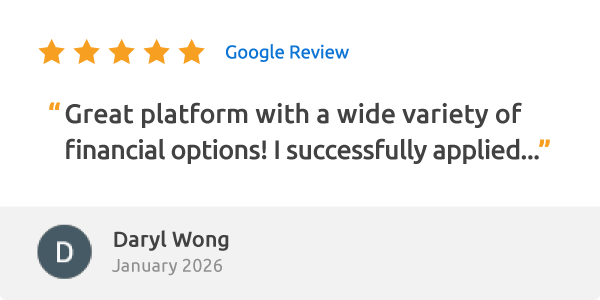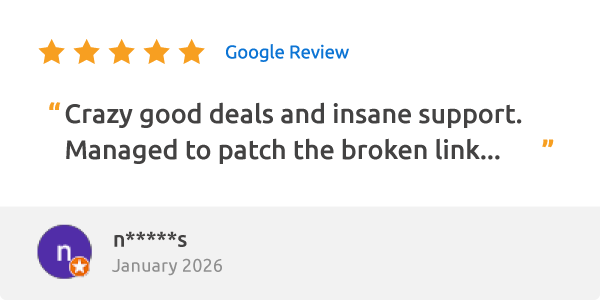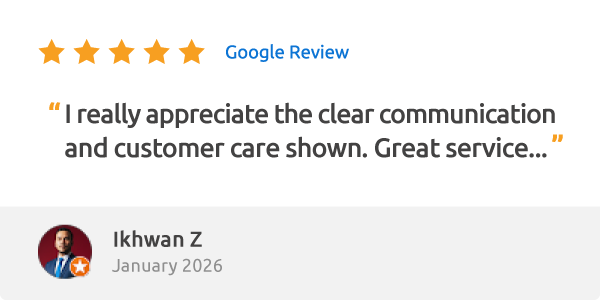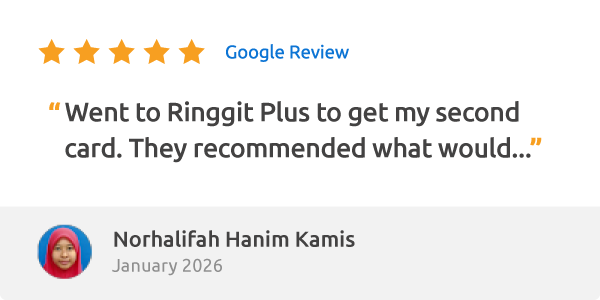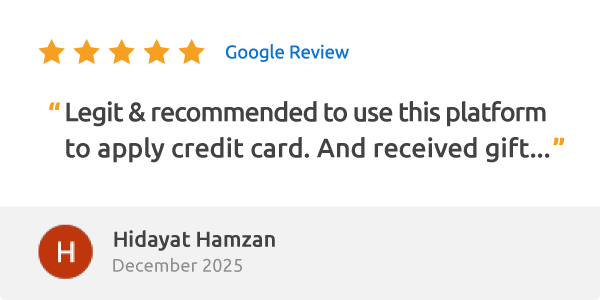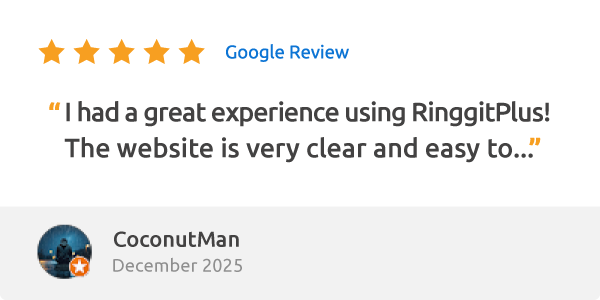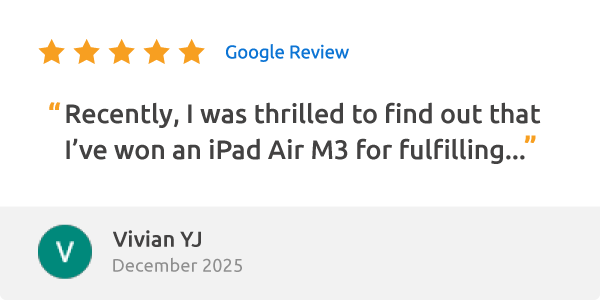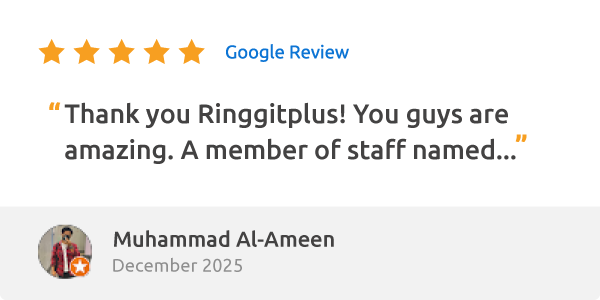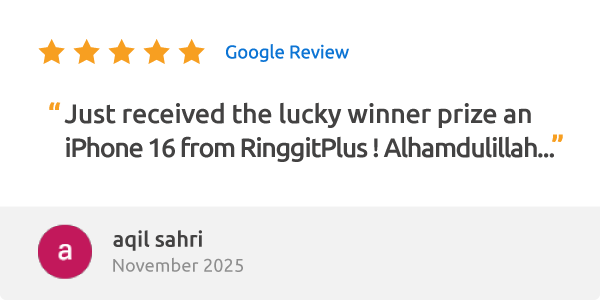Your Guide To Choose The Best Personal Loans In Malaysia 2026
We've gathered tips and advice from our years of experience to help you find and apply for a personal loan. Learn what personal loans are, how to get the best rates, and what to do once your application gets approved or is rejected.
What Is A Personal Loan?
A personal loan is a sum of money you borrow from a bank or other licensed lending institutions. You will repay the funds, plus interest or profit (for Islamic financing), in monthly instalments over the chosen borrowing period or loan tenure. As an unsecured loan, you can use it to fund your education, home improvement, consolidate your multiple debts or pay for your unexpected expenses.
Use RinggitPlus to compare rates from multiple lenders and find the loan that works for your budget.
In the table below, we list the common terms you’ll find when searching for a personal loan.
| Terms | Descriptions |
| Interest Rate |
The cost of borrowing money.
For example, if you borrow RM100 at an interest rate of 10%, you'll pay back RM110. The extra RM10 is the interest that the bank charges you for lending you their money. |
| Per Annum (p.a.) | Interest is calculated annually. For instance, an annual interest rate of 5% on a RM10,000 loan would amount to RM500 in interest per year. |
| Principal |
The amount of money you have borrowed. The interest rate will be calculated on this amount. Using our example of an RM10,000 loan, the calculation should be: Principal + Interest = Total Repayment Amount (RM10,000 + 5% p.a. = RM10,500) |
| Tenure | Means time. Shorter loan tenures mean higher monthly payments, but you'll pay less interest overall. On the flip side, longer tenures offer lower monthly payments, but you'll end up paying more in total interest. |
| Instalment | You'll need to make monthly repayments on your loan for the entire tenure. Your instalment amount, which covers both the amount you borrowed and the interest, is fixed and split evenly across all the months. |
| Penalty |
This is a type of fee charged on any late payments.
|
| Default |
Missing your loan repayments for more than three months means you've defaulted on your loan. This can lead to extra fees from the bank and them starting recovery procedures. Plus, defaulting will hurt your credit score, making it tough to borrow money in the future. |
What Type Of Personal Loans Should I Compare In Malaysia?
Check the features that matter to you. Interest rate is important, but it's not everything. Ask yourself these questions:
- Do I want a secured or an unsecured loan?
- Should I choose a conventional or Islamic loan?
- Do I need insurance with my loan?
Compare your options carefuly. This helps you find a loan that fits your need, not just your budget.
Secured vs. Unsecured |
|
|
Secured Loans
|
Unsecured Loans
|
Conventional vs. Islamic |
|
|
Conventional Loans
|
Islamic Loans
|
With Takaful/ Insurance vs. Without Takaful/ Insurance |
|
|
With Takaful or Insurance Coverage
|
Without Takaful or Insurance Coverage
|
What Affects My Personal Loan's Interest Rate?
The interest rate offered by a bank or lender may not match the advertised rate. How the rate varies mostly depends on these four important things:
- Your credit score, which shows how reliable you are with payments.
- The actual loan amount, how much you want to borrow
- The tenure you pick is how many years you choose to repay the loan
- Your Debt Service Ratio (DSR), which is the percentage of a borrower's total income that goes toward paying monthly obligations.
These elements together help determine the total cost of borrowing.
RinggitPlus shows you personalised rates based on your profile, so you know what to expect before you apply
How Do Banks Calculate My Personal Loan Interest?
Banks calculate the interest using a simple flat rate method:
Step 1: Apply the Interest Rate to Your Full Loan Amount
Banks take your original loan amount and multiply it by the interest rate. They use the full loan amount for the entire loan period. The interest doesn't change even as you pay down the balance.
Step 2: Calculate Total Interest for the Whole Loan
They multiply the loan amount by the interest rate and the loan years. For example: RM10,000 × 8% × 5 years = RM4,000 in total interest.
Step 3: Add Interest to Your Original Loan
Banks add the total interest to your original loan amount. Using the example above: RM10,000 + RM4,000 = RM14,000 in total repayment.
Step 4: Divide by Number of Months
They divide the total repayment (principal plus interest) by your loan tenure in months. RM14,000 ÷ 60 months = RM233.33 in monthly payment.
Why are banks using this method? This flat rate calculation keeps your monthly payments the same. You know exactly how much to pay each month. Banks prefer this because it's simple for both them and customers.
However, remember that the Effective Interest Rate (EIR) will be higher. This is because you're paying interest on the full amount throughout. You're not getting credit for the principal you've already repaid.
To ensure fairer and more transparent consumer lending practices, Bank Negara Malaysia (BNM) has moved to prohibit the use of this flat rate interest method and the Rule of 78 for calculating interest and profit charges on personal financing products. This regulatory change will be effective from 1 January 2027.
Does The Bank Check My Financial History Before Approving My Personal Loan Application?
Yes, they do, by looking at your credit report. This report shows all your previous debt payments, and it tells banks if you pay them on time.
Banks use the Central Credit Reference Information System (CCRIS) for this check. A CCRIS report gathers your credit history from all Malaysian financial providers and shows your payment behaviour over the past 12 months. You can check you CCRIS report online.
With this report, banks can assess your financial trustworthiness. So if you have a good payment history, you have higher chances of getting your loan approved.
When you apply through RinggitPlus, we help you understand your eligibility upfront, so you're not wasting time on applications that won't go through.
What Is Credit Score And How Does It Affect Your Personal Loan Application?
Banks will use a credit score to decide if they should lend you money.
A credit score is a 3-digit number that shows how good you are at repaying loans. A good score gives you higher chances of loan approval, and you may also enjoy lower interest rates and faster approval. Low scores may lead to loan rejection or higher interest rates. And yes, banks will use a credit score to decide if they should lend you money.
This is why checking your score regularly is important, especially if you have multiple loans or credit cards. You can do so through CTOS, a credit agency in Malaysia, to help you understand your chances before applying for any loan.
Here’s a general idea of credit scores and what they mean to lenders.
| Credit Score | What It Means to Lenders |
| 744 - 850 |
Excellent. You're viewed very favourably by lenders. |
| 718 - 743 |
Very Good. You're viewed as a prime customer. |
| 697 - 717 |
Good. You're above average and viable for new credit. |
| 651 - 696 |
Fair. You're below average and less viable for credit. |
| 529 - 650 |
Low. You may face difficulties when applying for credit. |
| 300 - 528 |
Poor. Your credit applications will likely be affected. |
What To Consider When Comparing The Best Personal Loan in Malaysia?
Before you start comparing loans on RinggitPlus, consider these factors:
Decide On The Amount
The common loan amount (also known as the principal amount) you can borrow from banks ranges from RM5,000 to RM200,000. You may also get an amount as high as RM300,000, depending on the bank, your financial history, credit score, monthly income and your job.
Decide On The Loan Tenure
You can choose to repay your personal loan over a period of between six months and ten years. But again, remember that longer tenures mean you pay more in interest, even though the monthly instalment is lower.
Our example shows how the loan tenure will affect your monthly repayments.
| Period | Shorter (1 - 3 years) | Longer (4 - 10 years) |
| Interest Charge |
Low RM10,000 x 5% x 1 year = RM500 |
High RM10,000 x 5% x 10 years = RM5,000 |
| Monthly Instalment |
High RM10,500 ÷ 1 year = RM875 per month |
Low RM15,000 ÷ 10 years = RM125 per month |
Compare The Effective Interest Rates (EIR)
The Effective Interest Rate (EIR) is a handy way to compare loan costs. It includes all the fees, charges, and the interest rate. A lower EIR means a cheaper loan for you.
Check The Early Settlement Fee
Some banks might charge you a penalty if you want to pay extra or settle your loan early. But some lenders don't have early settlement fees. If you think you might be able to pay off your loan ahead of time, choosing one of those providers would be a smart move!
When Is The Due Date Of My Personal Loan?
Your first monthly payment starts one month after receiving the loan money. The due date depends on your loan terms and conditions. It could be on the 1st or mid-month.
If you can't pay the full amount, you can pay the minimum recommended by the bank. This prevents late payment penalties but comes with a cost, as you'll be charged 15% to 18% yearly interest on the remaining unpaid balance. It's better to pay the full amount whenever possible to avoid extra charges.
What Are the Payment Fees for the New Personal Loan Products?
For late payment fees, banks typically charge 1% per annum on the overdue amount, calculated daily until it is settled. Non-bank lenders tend to charge more, usually around 8%. The fee is small on its own, but it adds up the longer you leave it unpaid, and it affects your credit score.
For early settlement fees, Bank Negara guidelines allow banks to charge around 1 to 3% of the remaining balance if you pay off your loan before the tenure ends. Not all banks charge this, so it is worth checking your loan agreement before committing to early settlement.
Stamp duty is a government tax charged on loan agreements in Malaysia. For personal loans, the rate is 0.5% of the total loan amount. This is a one-time charge and is usually deducted from your loan disbursement, so the amount you receive may be slightly less than what you applied for.
Processing or disbursement fees vary by lender. Some banks charge a one-off fee when your loan is approved and disbursed, while others waive it entirely. This is usually stated in the loan offer letter.
The best way to get the exact figures is to check your loan agreement or call your bank directly, as fees differ from one lender to another.
How Do I Make My Personal Loan Monthly Instalment Payment?
You have the flexibility to make your monthly instalment payment in various channels, such as follows:
- Online banking (IBFT or IBG transfer, bill payment, etc.)
- Standing instruction (auto deduction)
- Cash deposit
- Over the counter
Tips: You may earn cashback on your interest payments when you make a prompt repayment every month throughout the tenure. Check out these top personal loans with a cashback program:
What Happens If I Pay My Personal Loan Instalment Late?
The bank will penalise you a 1% late payment fee, while non-banks or financial lenders often charge an 8% fee. The late payment fee is calculated daily until you pay it off.
That's not all, your credit score will take a turn for the worse too. Hence it is important to pay your instalment in full before or on the due date.
Below is a calculation example if you are late in paying your loan instalment.
Overdue amount: RM875
Number of days overdue: 10 days
Late payment charge: 1% per annum (p.a.)
Calculation: RM857 x 1% p.a. x (10 ÷ 365 days) = RM0.23
If you are on the verge of defaulting on your loan, you must immediately inform the bank to discuss a possible recourse on your repayments.
Alternatively, you can engage Agensi Kaunseling dan Pengurusan Kredit (AKPK), a debt management program by Bank Negara Malaysia that offers free services on money management, credit counselling and debt restructuring for individuals.
Can I Settle My Outstanding Personal Loan Balances Early?
Yes, you can settle your outstanding loan balances before the end of your tenure, subject to the terms and conditions of your loan. You must inform the bank in a written notice before your loan's early settlement. Furthermore, an Early Settlement Fee may or may not be charged, depending on your loan agreement.
Tips: A personal loan is usually calculated on a flat rate basis; therefore, a partial settlement is not advisable. I
If I Make Extra Payments On My Personal Loan, Will They Go Toward the Principal or the Interest?
In Malaysia, banks apply extra payments to the outstanding principal first, but the impact depends on whether you have a flat rate or reducing balance loan.
Flat rate loans are common for personal loans in Malaysia. The total interest is calculated upfront on the original loan amount and spread across your tenure. Even if you make extra payments, the interest is already locked in. Your extra payment reduces the principal, but the interest savings may be limited unless the bank recalculates your repayment schedule. Some banks do this, some don't.
Reducing balance loans work differently. Interest is charged on the remaining principal each month, so extra payments reduce your principal and lower future interest charges. The earlier you pay extra, the more you save.
In conclusion, if you have double-paid your monthly instalment for the month, the bank will deem it an “Advance Payment”, which will not reduce your interest payment or the principal amount for the month.
How Do I Qualify For A Personal Loan?
You must first meet the eligibility criteria as set out by the bank, including but not limited to:
- Nationality: Malaysian, permanent resident or foreigner
- Age: 21 to 60 years
- Employment type: salaried employee (public/private sector) or self-employed
- Income type: fixed, contract, commission basis
- Residential status: own house, rented, living with family/relatives, company provided, etc.
Tips: Your lifestyle is also a contributing factor to your loan approval. If the bank spots an inconsistency in your employment histories, salary and disposable incomes, and places of residence, you may not be a favourable borrower.
What Documents Should I Prepare To Apply For My Personal Loan Application?
You should prepare documents such as your Identification Card/ MyKad and income proof to speed up your loan application process.
The type of document may vary from bank to bank depending on your employment type. So best to check with the bank of your choice beforehand.
All in all, here’s a list of the general documents that you need to prepare.
| Documents | Loan Application for Salaried Individuals | Loan Application for Self-Employed Individuals | Loan Application for Senior Citizens/Pensioners |
| Application Form | ✓ | ✓ | ✓ |
| Copy of IC/Passport | ✓ | ✓ | ✓ |
| Income Proof(Depending on the bank) |
|
|
|
| Others(Depending on the bank) |
|
|
|
What To Do After My Personal Loan Is Approved?
Congratulations on getting your loan approved! Here’s a checklist on what to do next.
1. Carefully Review the Loan Agreement
Before you sign any documents, take the time to read the loan agreement in its entirety. This is a legally binding contract that outlines the terms and conditions of your loan. Pay close attention to the following details:
- Final Loan Amount: Confirm that the amount disbursed matches what you applied for.
- Interest Rate and Calculation: Understand whether the rate is fixed or variable and how interest is calculated on your principal.
- Repayment Schedule: Note the exact due date for your monthly instalments. Missing a payment can lead to penalties and a negative impact on your credit score.
- Total Cost of the Loan: The agreement should detail the total amount you will pay over the life of the loan, including all interest and fees.
- Early Repayment/Prepayment Penalties: Check if there are any fees for paying off your loan early.
- Late Payment Penalties: Familiarise yourself with the charges for late or missed payments.
If you have any questions or find any discrepancies, contact your bank or lender immediately before signing.
2. Set Up Your Repayment Plan
Consistency is key to managing your loan effectively. Set up a clear and reliable system for making your payments on time.
- Automate Payments: The easiest way to avoid late payments is to set up an automatic bank transfer from your account to the lender. This ensures that the payment is made on time every month without you having to remember.
- Create a Budget: Incorporate your new loan repayment into your monthly budget. Ensure you have enough funds to cover the instalment without compromising other essential expenses.
- Set Reminders: If you prefer to make manual payments, set up recurring reminders on your phone or calendar a few days before the due date.
3. Use the Loan Wisely
Use the money for the exact purpose you stated in your application. Whether it's for home renovations, debt consolidation, or a major purchase, stick to your original plan. Avoid the temptation to use the funds for non-essential or unplanned expenses, as this can lead to further financial strain.
4. Understand the Impact on Your Credit Score
Your new personal loan will be reported to credit bureaus like CCRIS in Malaysia. This will affect your credit score and history.
- Positive Impact: Consistently making on-time payments will build a positive credit history, which can make it easier to secure future financing with better terms.
- Negative Impact: Late or missed payments will be recorded and can significantly damage your credit score, making it difficult to get approved for credit cards, home loans, or future personal loans.
5. Keep Your Financial Documents Organised
Maintain a dedicated folder for all documents related to your loan. This includes the signed loan agreement, payment receipts, and any correspondence from the lender.
Having these documents readily available can be helpful if you have any questions or disputes in the future.
6. Consider Early Settlement (If Possible)
If your financial situation improves and your loan agreement allows it without a significant penalty, consider making extra payments or paying off the loan earlier than the scheduled tenure. This can save you a substantial amount on interest charges and free up your monthly cash flow.
How Will I Receive My Personal Loan Money Once Approved?
Some banks require you to open a savings account with them, whereas others will pass you the cheque or do an IBG Transfer to your designated bank account.
Keep in mind that your eligibility, credit history and credit score play major roles in determining your loan application approval.
Good news! If you apply for an RHB personal loan through RinggitPlus, you can get approval instantly. The online application process is fast and convenient. You don't have to wait days or weeks for a decision.
What To Do When Your Personal Loan Application Is Rejected?
If your loan gets rejected, call the bank to understand why.
Check your repayment history for previous loans like PTPTN through CCRIS. You should also check your credit score via CTOS to see where you stand.
Another way to improve your creditworthiness is by making all payments on time going forward. Wait for a while before applying for another personal loan from any bank. This gives your credit score time to improve.
Here’s a guide that we’ve prepared that you can refer to on how to get your loan approved.
Can I Apply Online For A Personal Loan In Malaysia?
Yes, applying online is always recommended because you can easily compare personal loans and use financial tools to determine your credit score and calculate loan affordability.
At RinggitPlus, we have multiple banks and loan providers you can compare and choose from, all at your fingertips. We can also help check your loan eligibility for free!
How To Apply For A Personal Loan With RinggitPlus?
Applying for personal loans with RinggitPlus is quick, easy, and 100% online. You can do it in under 10 minutes, right from your couch.
Step 1: Choose Your Loan
Browse through our list of personal loans and click “Apply Now.” Not sure which one suits you? No worries, just hit the “Apply for Loan” button above and we’ll recommend one based on your needs.
Step 2: Chat With Our WhatsApp Bot
You’ll be redirected to our WhatsApp chatbot. Simply answer a few quick questions to kick off your application. It's smart, fast, and easy to use.
Step 3: Let the Bank Handle the Rest
Once you’ve completed the chat, we’ll submit your application to the bank. From there, just sit back and wait for the bank to contact you if you’re eligible.
How to Pick The Perfect Personal Loan For You
Go with GXBank or CIMB if you're chasing the lowest rate. Pick Bank Islam if you need halal financing. Choose RHB if you're in a rush. Take Alliance Bank if you never miss payments. Get AEON Bank if you're in government service. Try UOB if you already hold their credit card.
Not sure which fits? Hit the "Apply for Loan" button and chat with our bot. Answer a few questions, and we'll match you with the right loan based on your salary and job type.
How Can RinggitPlus Help With Your Personal Loan Journey
Financial freedom means you're no longer stuck with unmanageable debts. We hope that this guide helps you make smart loan decisions and get approved easily.
Need more loan options catering to your preferences or budget? Head over to our dedicated loan pages designed for different needs and budgets.
Compare and apply for RinggitPlus fast loan
Compare and apply personal loans for low-income earners
Compare and apply for personal loans with low interest rates
Compare and apply personal loans for government/glc employees
Compare and apply for Shariah-compliant Islamic loans
Compare and apply for a secured loan
Frequently Asked Questions (FAQ) About Personal Loans
Find quick answers to your most common questions about personal loans.
How Do Personal Loans Help Me Financially?
Personal loan can help to improve your financial situation in several practical ways:
- Get money when you need it most: Personal loans give you cash upfront when you don't have enough savings. You don't have to wait years to save for important things. This includes education, home repairs, or starting a business.
- Build your credit score: Making loan payments on time shows lenders you're responsible with money. This improves your credit score over time. Better credit means lower interest rates on future loans and credit cards.
- Save money through debt consolidation: You might have multiple debts with high interest rates, like credit cards. A personal loan can combine them into one lower monthly payment. This often saves you hundreds or thousands of dollars in interest. See how much you could save and simplify your finances with a Debt Consolidation Calculator.
- Invest in your future earning power: Use a loan for education, job training, or starting a business. These investments can increase your income over time. The extra money you earn often pays back much more than the loan cost.
- Handle emergencies without going broke: Don't drain your savings for unexpected expenses. A personal loan lets you keep your emergency fund safe. You can still pay for urgent needs without financial stress.
- Make large purchases affordable: Avoid paying huge amounts all at once. Loans let you spread costs over months or years. This creates manageable monthly payments that fit your budget.
The key is using loans strategically for things that improve your finances. Avoid using them just for wants or luxury items.
What Is Effective Interest Rate (EIR) and How Does It Affect Me?
Think of it this way: you start with an RM10,000 loan. After one year, you've paid back some money, and you only owe RM8,000 now. However, here's the problem: the bank still charges interest on the full RM10,000. This happens even though you owe less money.
Let's compare what happens each month. In month 1, you owe RM10,000. The bank charges interest of RM10,000. By month 12, you owe RM8,000. But the bank still charges interest on RM10,000. By month 24, you owe RM6,000. The bank continues charging interest on RM10,000.
This makes the real interest rate higher because you're paying interest on money you already gave back to the bank. It's like paying rent on a room you no longer live in. Your flat rate might be 8%, but you pay interest on the full amount throughout the entire loan period. Your actual interest rate becomes around 14-16%.
This is why banks must show you both rates by law. The EIR tells you the real cost of borrowing. It helps you understand what you're actually paying.
What Is Debt Service Ratio, And How Does It Affect My Personal Loan Application?
DSR shows how much of your income goes toward debt payments each month. Banks use this to decide how much money you can borrow.
The rule is simple: your total monthly debt payments shouldn't exceed 60% of your monthly income. This gives you room for other expenses and savings.
Banks use DSR to see if you have enough money to pay your monthly instalment using a formula: Total Monthly Commitments ÷ Total Monthly Income x 100% = DSR
For example, if you take time to pay RM5,000 monthly and you pay RM2,500 in loan instalments each month, your DSR is 50%. Half your income goes to debt payments, you have little money left for living costs, savings, and emergencies.
What happens if your DSR is too high? Banks will either reject your loan or offer a smaller borrowing amount. They want to make sure you can repay your debt without struggling.
Calculate your DSR before applying for a personal loan. It will help you know how much you can realistically borrow.
How Does A Personal Loan Calculator Empower My Borrowing Decisions?
It's not just a simple tool for math; it's a powerful way to gain clarity and control before you commit.
- Instantly see your estimated monthly loan payments by inputting the loan amount, interest rate, and repayment period. This helps you budget confidently and avoid financial stress.
- To find the best personal loan in Malaysia, compare bank offers using a loan calculator. This helps identify options with lower monthly payments and less overall interest.
- A personal loan calculator reveals the true cost of your loan, including principal and total interest, preventing repayment surprises.
- Choose your loan tenure wisely. Longer terms mean lower monthly payments but higher total interest. Use our personal loan calculator to compare options (e.g., 5-year vs. 7-year) and find the balance between affordable payments and overall cost.
When Is It A Good Time To Get A Personal Loan To Consolidate Credit Card Debt?
If you are struggling to keep track of multiple credit card bills with different due dates, a personal loan can help you to solve this. It combines all your balances into one single monthly payment with a fixed rate. This makes budgeting clearer and lowers the risk of getting charged late fees.
If your debts are starting to feel like too much, or you are getting close to missing payments, consolidating helps you regain control.
What Can I Do If I Can't Make My Personal Loan Repayments?
When you struggle with personal loan payments, you have two main options: contact your bank or get free help from the government-linked agency, Agensi Kaunseling dan Pengurusan Kredit (AKPK).
-
Talk to Your Bank First
Tell them you're having trouble making your loan payments. You can negotiate directly to ask the bank to restructure or reschedule your loan terms. This means finding a repayment plan with lower monthly instalments that better fits your current income. Banks usually prefer to find a solution with you before your loan goes into default.
- Get Free Help from AKPK
AKPK provides free counselling and advice on managing your finances.
If you're struggling, AKPK can enrol you in their Debt Management Programme (DMP). Under the DMP, they will negotiate with your bank to create a personalised debt repayment plan that you can afford.
The process simplifies things: you make one single monthly payment to AKPK, and they distribute the payments to all your different creditors.
Personal Loan Myths Debunked
Malaysians believe a lot of things about personal loans that simply aren't true. These myths can cost you money or stop you from getting approved. Whether you're looking for a low interest personal loan, fast approval personal loan, or Islamic personal financing, let's clear up the confusion with facts.
Myth 1: "Banks Check Your Spending Habits in Your Bank Statement"
The Truth: Yes and No
Banks do look at your bank statement when you apply for a personal loan, but they're not judging whether you bought nasi lemak at the mamak stall or Starbucks at Pavilion.
Banks actually check your income consistency. Does your salary come in every month like clockwork? They look for bounce history and check if you've had insufficient funds when payments tried to go through. They want to see existing loan deductions and how much is already going out for other debts. Gambling transactions are a red flag if they see frequent online betting, casino withdrawals at Genting Highlands or Resorts World, or betting apps like SG88, iBet, or 4D platforms. They also look for suspicious patterns like large cash withdrawals that don't match your stated expenses.
Banks don't care about your Grab Food orders, shopping at Shopee or Lazada, your Netflix or Astro subscription, coffee purchases at Oldtown White Coffee, or reasonable lifestyle spending at TGV or GSC cinema.
They want to see stable income coming in and responsible money management going out. One RM500 handbag purchase at Suria KLCC won't kill your personal loan application, but RM5,000 at a casino or consistent Sports Toto transactions will.
This applies whether you're applying for an unsecured personal loan, debt consolidation loan, or emergency cash loan. Your spending patterns matter less than your payment behavior. If you're making regular EPF contributions, paying your PTPTN on time, and keeping up with your Astro or Unifi bills, that's what banks want to see.
Myth 2: "Applying to Multiple Banks Increases My Approval Chances"
The Truth: This Strategy Backfires Badly
When you apply for personal loans at multiple banks within a short period, each bank checks your credit report. Every check leaves a mark called a "credit inquiry" on your CCRIS and CTOS reports.
Here's what happens. In Week 1, you apply at Maybank, CIMB, and RHB. Maybank sees 0 recent inquiries and that's a good sign. CIMB sees 1 recent inquiry from Maybank and gets concerned. RHB sees 2 recent inquiries and raises a red flag. By Week 2, all three banks reject you because you look desperate.
Banks reject multiple applicants because it signals financial desperation. They assume you're trying to borrow from everyone. They worry you'll take multiple loans and can't repay. You look like a high-risk borrower.
Check your CTOS score first at any CTOS branch or online. Other than that, calculate your DSR before applying. Choose ONE bank that fits your profile. Only apply to a second bank if the first rejects you. Wait 1-2 months between applications.
This matters whether you're looking for a personal loan for debt consolidation, personal loan for home renovation in Selangor or Penang, wedding loan for your wedding ceremony, medical loan for treatment at Gleneagles or Pantai Hospital, or education financing for your IPTA or IPTS studies. Each application counts as a separate inquiry.
Using RinggitPlus doesn't hurt because we pre-qualify you before sending your application to the bank. We help you choose the right bank the first time, whether you need instant approval personal loan or low income personal loan options.
Myth 3: "Higher Income Means Automatic Approval"
The Truth: Income is Only One Piece of the Puzzle
You can earn RM15,000 a month and still get rejected for a personal loan.
Consider Ahmad who earns RM15,000 monthly working as a manager in Cyberjaya. He has an existing car loan for his Perodua Myvi at RM2,000 per month, credit card debt at RM4,000 per month, and a home loan for his condominium in Shah Alam at RM3,500 per month. His total commitments are RM9,500. His DSR is 63%. He gets rejected.
Now look at Siti who earns RM4,000 monthly as a teacher in Ipoh with no existing loans. Total commitments are RM0. DSR is 0%. She gets approved.
What matters more than income is your Debt Service Ratio must be below 60%. Your credit score shows payment history on past loans including your PTPTN, car loan, and credit cards. Employment stability matters, specifically how long you've been at your job. Age is a factor because the loan must mature before you turn 60 to 65 years old, which is the standard retirement age in Malaysia. Some industries are considered high-risk, especially retail, F&B, or tourism sectors that saw many retrenchments during the pandemic.
High income can trigger rejection when you're too new in a high-paying job, less than 6 months. Commission-based income that varies wildly raises concerns, especially for property agents, insurance agents, or Grab drivers. Unexplained income jumps make banks suspect fake documents. High income but terrible credit score from unpaid Maxis bills, astro subscriptions, or defaulted hire purchase gets you rejected.
RM3,000 salary with clean credit beats RM10,000 salary with messy finances every time. This is true for personal loan Malaysia applications across all banks, whether you're applying for Alliance Bank personal loan, Maybank personal loan, CIMB personal loan, Public Bank personal loan, Hong Leong Bank personal loan, or AmBank personal loan.
Low income earners with RM2,000 to RM3,000 monthly salary can get approved if their credit is clean and DSR is low. Banks like AEON Bank, Bank Rakyat, and Hong Leong Bank offer personal loans for low income borrowers. Even if you're earning minimum wage at RM1,500 under the new government ruling, some licensed money lenders approved by Bank Negara offer micro loans. Your salary matters less than your ability to repay.
Self-employed individuals running a nasi kandar restaurant in Penang, a kedai runcit in Johor, or a Shopee store can still get approved. You'll need your SSM business registration, Form B or Form BE for tax filing, and 6 months of business bank statements.
Myth 4: "Government Workers Always Get Approved"
The Truth: Government Jobs Help A Lot, But Don't Guarantee Approval
Government and GLC employees get better treatment when applying for personal loans, but you can still get rejected.
Government workers have stable, permanent employment. Salary gets deducted automatically via Biro Angkasa for those in the civil service. They present lower default risk. Special rate packages exist, like AEON Bank at 3.88%. Approval rates are higher for civil servants, teachers at sekolah kebangsaan or SMK, nurses at government hospitals like HKL or Hospital Sungai Buloh, police officers, ATM personnel, immigration officers, and JPA scholars.
Banks like BSN, Bank Rakyat, MBSB Bank, and Co-opbank Pertama offer special government employee personal loans with preferential rates. These government sector personal loans come with lower profit rates and easier approval processes. If you're a government servant under the SPA scheme or working for GLCs like Petronas, TNB, Telekom Malaysia, PLUS, or Khazanah subsidiaries, you get better terms.
Government workers get rejected when their DSR is maxed out. You might already have an LPPSA loan for your house, KWSP withdrawal commitments, Koperasi loans from Koperasi Polis, Koperasi Guru, or Angkasa, car loan for your second Proton Saga, home loan, and credit card debt from your Maybank 2 Cards. Your RM5,000 government salary is fully committed. Bank sees 70% DSR and rejects you.
Bad credit history doesn't disappear just because you work for Kementerian Kesihatan or Kementerian Pendidikan. Late PTPTN payments showing on CCRIS, defaulted credit cards, unpaid parking summons from DBKL or MBPJ affecting your CCRIS, and previous loan defaults all count against you. Even your unpaid Astro bill or Unifi arrears can hurt you.
Employment probation is an issue. Some banks require confirmed employment status and at least 6 to12 months in service. Fresh graduates who just joined the government under contract programme or still in their probation period need to wait. If you're a replacement teacher or contract doctor, some banks treat you differently than permanent staff.
Approaching retirement creates problems. If you're 55 years old requesting a 10-year loan, the loan matures when you're 65. You'll be retired by then under the government mandatory retirement age. Bank worries about repayment ability when you're only getting your pencen KWAP. They'll either reject or shorten the tenure to 5 years maximum.
Job grade matters. Lower-grade government positions at gred 17 to gred 27 face lower maximum loan amounts, stricter verification, and limited bank options compared to PTD officers, medical officers, or senior civil servants at gred 48 and above.
Pensioners can still apply using pension income from KWAP or KWSP. Bank Rakyat and MBSB Bank offer personal loans for pensioners and retirees with competitive rates. Even if you're getting RM2,000 monthly pension, you can borrow up to RM50,000 depending on the bank.
Myth 5: "Islamic Loans Are Always More Expensive"
The Truth: Islamic Loans Can Actually Be Cheaper
The math proves Islamic financing is competitive or better than conventional personal loans.
Let's compare real offers as of 2026. Bank Islam offers Personal Financing-i at 4.50% p.a. For RM50,000 over 5 years, you pay RM931 monthly. Maybank's conventional Personal Loan at 6.50% p.a. costs RM977 monthly. AEON Bank's Personal Financing-i at 3.88% p.a. costs RM915 monthly. CIMB Cash Plus conventional loan at 4.38% p.a. costs RM927 monthly. Al Rajhi Personal Financing-i at 5.27% p.a. costs RM945 monthly. RHB's conventional Personal Financing at 7.62% p.a. costs RM1,005 monthly.
Banks offering competitive Islamic personal financing include Bank Islam, Maybank Islamic, CIMB Islamic, Bank Rakyat, Bank Muamalat, MBSB Bank, Al Rajhi Bank Malaysia, HSBC Amanah Malaysia, AmBank Islamic, Hong Leong Islamic Bank, Affin Islamic, and Public Islamic Bank. These Shariah-compliant personal loans follow Islamic banking principles with no riba, approved by the Shariah Advisory Council.
Islamic products differ in structure, not cost. Instead of "interest," you pay a "profit rate" based on the concept of murabahah, musyarakah, or bai al-inah principles. The bank buys the debt and sells it to you at a marked-up price. Fixed profit doesn't compound like interest. The structure is Shariah-compliant with no riba or usury, making it halal for Muslims who want to avoid haram transactions.
Compare costs over 5 years. A conventional loan at 6.50% means you borrow RM50,000 and repay RM58,620 total. Your total cost is RM8,620. Islamic financing at 4.50% means you finance RM50,000 and repay RM55,860 total. Your total cost is RM5,860. You save RM2,760 by choosing Islamic, enough to pay for a full year of your Astro subscription or your car's road tax and insurance.
Islamic costs more when mandatory takaful coverage gets added through companies like Etiqa Takaful, Takaful Malaysia, or Great Eastern Takaful. Some banks bundle takaful you don't need. Smaller Islamic lenders with less competition charge more.
Whether you need a personal loan without collateral, quick cash loan, or same day approval personal loan, both Islamic and conventional options exist.
Ready To Apply For A Personal Loan?
Use our personal loan comparison tool to find the right personal loan for your actual financial situation. Compare personal loan interest rates, monthly installments, and total borrowing costs from over 15 banks and lenders in Malaysia. Apply online for personal loans through RinggitPlus and get matched with the best loan offer for your needs. Whether you're in Kuala Lumpur, Johor Bahru, Penang, Ipoh, Melaka, or anywhere in Malaysia, we help you find the right financing.
